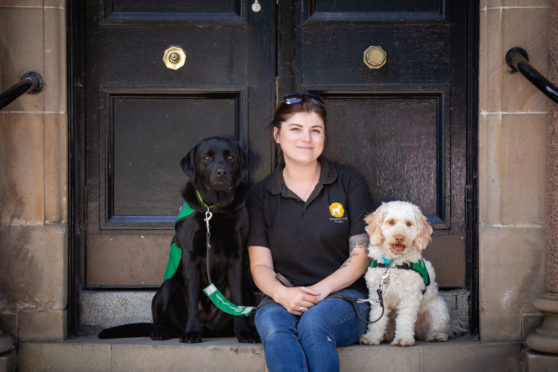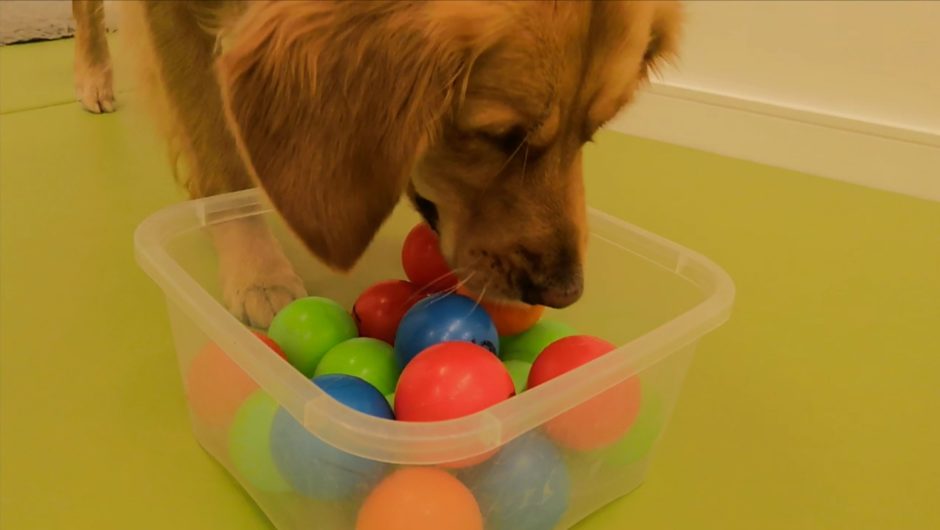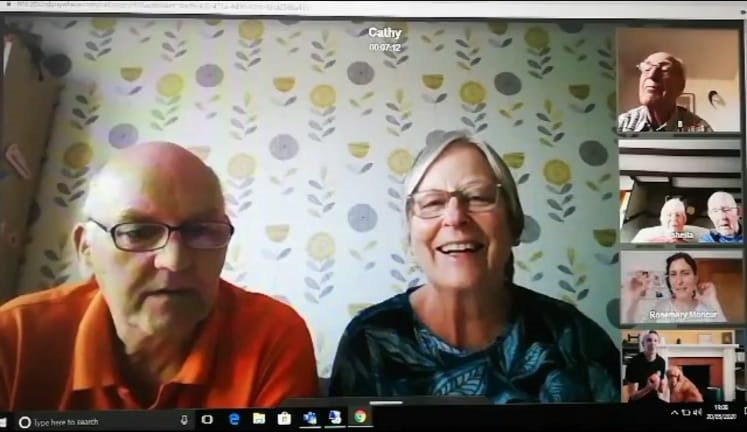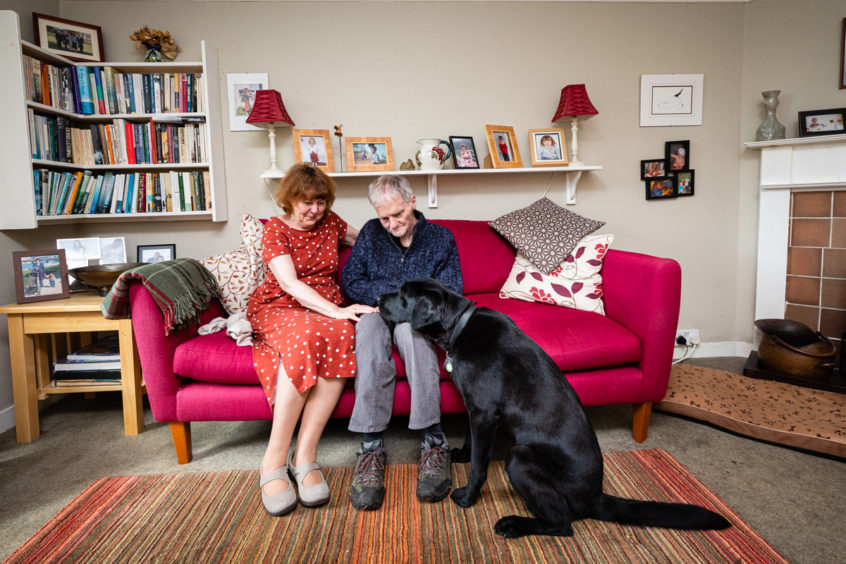
It may sound like something out of a nursery rhyme, but doggy bingo has become a vital tool in helping people living with dementia during the pandemic.
A series of innovative online activities designed to combat loneliness and isolation have been organised by the Dementia Dog project, a collaboration between charities Alzheimer Scotland and Dogs for Good.
Carla Haizelden, a Dementia Community Dog Handler in Glasgow, has been linking up with people across the country with her four-year-old black Lab / retriever cross Billy.
He plays a crucial role as the drawmaster for the bingo sessions – even if he sometimes gets a little distracted.
Carla said: “Doggy Bingo is very straightforward and easy to play. The players can watch Billy go and fetch a ball with a random number on it from a container. He passes it to me and I read out the number.
“Although the dogs are all very well trained we do allow them to have their own personality so it’s only natural that they sometimes get distracted and go off.
“There have been times during a game when Billy walks off to get my slippers or a toy instead of a bingo ball and that always gives everyone a bit of a laugh.
“He also gets impatient and whines when I’m talking too much because he wants to get on with the playing game and pick the numbers!”

Carla is joined by Bristol-based Julia Winters and her four-year-old golden retriever Gerogie, who like Billy is a trained Dementia Community Dog.
So far they have delivered 70 group sessions across the country from Portree on the Isle of Sky to Ardrossan in Ayrshire, reaching many more people online than they’d usually be able to in person.
In the new year, a new group of volunteers with their own dogs will be trained to help meet the rising demand.
Donna Paterson, Dementia Advisor at Alzheimer Scotland, said: “The feedback for the online bingo has been incredibly positive, participants can’t wait for the next session, they want to know when it is and they love the fact that it’s the dog that picks the bingo balls.
“They’re quite a competitive bunch and they’re really enjoying the banter online – it’s been a highlight for them and us and a real boost of positivity in the day.”
Alongside the bingo sessions, Dementia Dog also offers virtual dog walks.
This connects a dog handler and their dog to a person with dementia and their carer, who join them via a secure video link on the NHS Attend Anywhere service.
Carla said: “The walks are super fun and designed to help restore some routine back into people’s daily lives and keep them motivated to exercise. Normally we’d work face to face with a person living with a diagnosis of dementia to promote social development goals such as building confidence or self-reliance.
“Because we’re all staying home more at the moment, we found that some of our clients were finding the lack of routine and cognitive stimulation a real struggle and that’s where the virtual dog walks come in.
“The video link allows us to have conversations and share experiences while we’re on our walks. It also allows the client to interact with the dog and to give commands which makes it far more interactive.”
Dementia Dog also works with physiotherapists to offer virtual exercise sessions which are individually tailored to clients and delivered via video calls to their home.
Lenny has changed our lives
As well as being involved in online activities like bingo, the Dementia Dog project also provides specially trained assistance dogs to people living with the condition.
The animals can retrieve pouches holding medicine, gently wake up owners from naps, and help remove items of clothing.
Labrador Lenny has become a much-loved member of Jeannette and Jon King’s household in Aberdeen since arriving in 2018.
The four-year-old dog has been helping out Jon, 77, who was diagnosed with Alzheimer’s four years ago.
Wife Jeannette, 74, said: “Lenny has changed our lives. Getting him is one of the best things I’ve done in my life.
“When you or your partner receive a diagnosis, it feels like your life is closing down, but Lenny has opened up a new world. Jon has suffered from severe depression for many years but Lenny provides a positive start to the day. He makes Alzheimer’s that little less frightening.
“We’re out every day with Lenny. That is a bonus for our health and socialising – we are forever stopping to talk to people. Jon can’t bear to be without Lenny now. He’s the one thing always guaranteed to make him smile.”
Lenny has proved to be particularly useful in helping the couple cope with the struggles brought by the coronavirus pandemic and lockdown restrictions.
Jon now struggles to walk for anything more than a short distance, but he has been able to enjoy strolls in the garden and playing fetch with Lenny.
As well as helping to keep Jon and Jeannette active, the assistance dog has been a huge emotional help for the couple while spending most of their time indoors with only each other for company.
Jeannette said: “I think it’s also the emotional impact that he’s had on us both that’s been most important, particularly now Jon can’t get out as much. Jon has so much affection for Lenny and it’s reciprocated, he’s such an affectionate, gentle creature.
“When it’s been just the two of us at home during the lockdown having Lenny is like having a third person, but probably less trouble than a real person would be!
“He always welcomes us and we share and enjoy him. I suspect we’d be more likely to get irritated with each other without Lenny, he’s great for diffusing any tension or low moods in the house.”
Jeannette has also benefited from joining video calls with the Dementia Dog instructors and other carers. This has enabled her to talk to others with experience of caring for a person with Alzheimer’s and to share practical advice and support.

Enjoy the convenience of having The Sunday Post delivered as a digital ePaper straight to your smartphone, tablet or computer.
Subscribe for only £5.49 a month and enjoy all the benefits of the printed paper as a digital replica.
Subscribe
 © Supplied
© Supplied